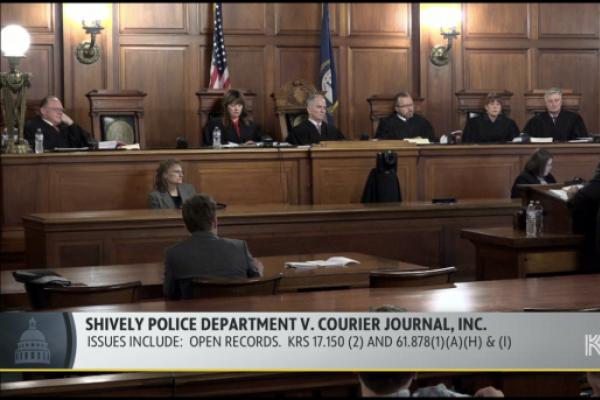
Note: This editorial in the The Herald Leader acknowledges UK's mixed messaging here.
https://www.kentucky.com/opinion/linda-blackford/article250368686.html
It references a records request from a conservative group that prompted President Capilouto's letter.
This is an important moment to remember a fundamental tenet of the open records law:
Open records "analysis does not turn on the purposes for which the request for records is made or the identity of the requester. The Legislature clearly intended to grant any member of the public as much right to access to records as the next."
https://law.justia.com/cases/kentucky/court-of-appeals/1994/93-ca-00185…
••••••••••••••••••••••••••••••••
Lamenting the state courts' increasingly limited view "of what can be considered private in terms of records" and the University of Kentucky's "obligat[ion] to follow these rulings even when we disagree," President Eli Capilouto today issued this letter to the University community.
We have grown accustomed to lawmakers demonizing the open records law to justify their actions, but we expected more from Kentucky's flagship university.
Not a good look for UK in the wake of last week's defeat in University of Kentucky v The Kernel Press, Inc. d/b/a The Kentucky Kernel.
http://opinions.kycourts.net/sc/2019-SC-0468-DG.pdf
*********************************
The Pursuit of Knowledge, Transparency
By President Eli Capilouto Friday
LEXINGTON, Ky. (April 2, 2021) — President Eli Capilouto sent an email to the University of Kentucky community yesterday reiterating UK's support of diversity, equity and inclusion efforts. The email message is below.
Dear Campus Community,
I write to you today about an issue that a number of campuses are dealing with across the country. I want you to know how we are choosing to grapple with it.
The issue speaks to a complex set of questions and values that, at times, come into tension with each other.
There is the importance of following the law with respect to open records to help ensure transparency and accountability. And yet, we must remain deeply committed to our values as an academic institution and an idea essential to what we are — a place where deep inquiry and free expression by our faculty, staff and students is defended.
Recently, for example, we've received a number of open records requests for emails and materials related to the work of — and correspondence via email between — a number of faculty and administrators. Specifically, some of those requests have focused on work by faculty in the priority area of Diversity, Equity and Inclusion (DEI).
I cannot speak for those who are requesting these materials and correspondence, nor will I speculate on their intent. Such requests are happening across the country. In these cases, we will comply with the requests as the law here is clear under the Kentucky Open Records Act.
But what is also clear is that we will — and we must — stand with our faculty, staff and students who are engaged in these efforts. The important work at our university to create a more diverse and accepting community is vital. It must — and will — continue. We will not be deterred in these efforts. We will not stand down in our Diversity, Equity, and Inclusion Implementation Plan, which involves faculty, staff and students across our campus.
In fact, we expect our faculty to work, teach, conduct research and render service around the topics of the day — regardless of where those issues take us, irrespective of issue or ideology, controversy or contentiousness. Our faculty know that asking questions and seeking answers — whether regarding climate change or religious liberty — is often uncomfortable and discomfiting. After all, the most worthwhile things — which for us involve the quest for knowledge and understanding — are so often the hardest things.
At the same time, as a public university, we are subject to the Kentucky Open Records Act. As a practical matter, this means that we have a legal obligation to disclose any records in our possession except under rare and narrow exceptions. That obligation and commitment to disclosure includes a variety of documents, agreements, contracts and even emails among members of our community.
To be sure, there are state, federal and constitutional protections for privacy relating to students, employees and patient records. However, it's also true that state courts, increasingly, have taken a more limited view of what can be considered private in terms of records. And we are obligated to follow these rulings, too, even when we disagree.
Our task is to do both — honoring our obligations under the law and honoring our obligations to stand with those who are doing work so essential to who we are as the University of, for and with Kentucky.
Becoming the community we aspire to be is an essential quest for us — a community where everyone regardless of who they are belongs and is accepted. Our efforts to create and sustain that community will continue. We will stand with those who are helping us lead this effort.
Eli Capilouto



